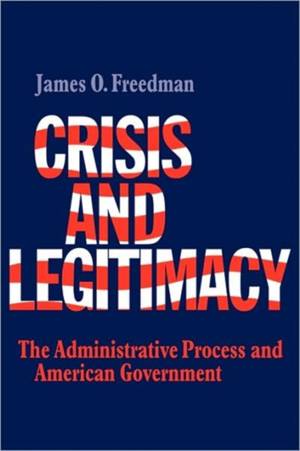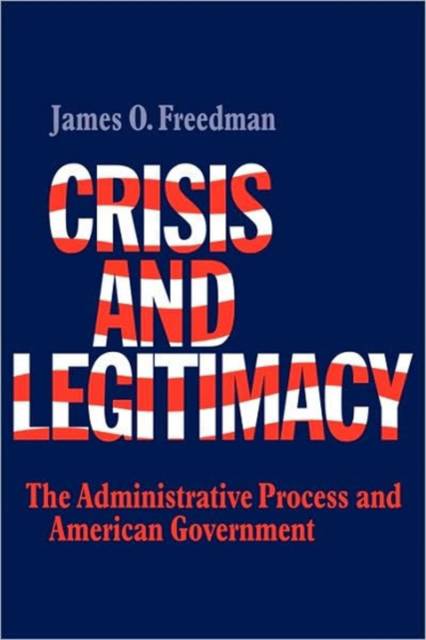
- Afhalen na 1 uur in een winkel met voorraad
- Gratis thuislevering in België vanaf € 30
- Ruim aanbod met 7 miljoen producten
- Afhalen na 1 uur in een winkel met voorraad
- Gratis thuislevering in België vanaf € 30
- Ruim aanbod met 7 miljoen producten
Zoeken
Crisis and Legitimacy
The Administrative Process and American Government
Freedman, James O Freedman
Paperback | Engels
€ 60,95
+ 121 punten
Omschrijving
One of the most striking developments in American history has been the steady growth in the administrative process, to the point that the regulatory agencies of the federal government now affect the lives of more citizens more pervasively than the courts and possibly the Congress. In virtually every relevant respect, the administrative process has become a fourth branch of government, comparable in the scope of its authority and the impact of its decision making to the three more familiar constitutional branches. This book identifies and examines the causes of the enduring sense of crisis associated with the administrative process. This book argues a theory of legitimacy for the administrative process must be created. The author seeks to develop such a theory from the quality of administrative justice, taking as a premise the conviction that the capacity of government to devise fair procedures for the discharge of its decision-making responsibilities is the essence of democratic practice.
Specificaties
Betrokkenen
- Auteur(s):
- Uitgeverij:
Inhoud
- Aantal bladzijden:
- 340
- Taal:
- Engels
Eigenschappen
- Productcode (EAN):
- 9780521293808
- Verschijningsdatum:
- 30/05/1980
- Uitvoering:
- Paperback
- Formaat:
- Trade paperback (VS)
- Afmetingen:
- 152 mm x 229 mm
- Gewicht:
- 498 g

Alleen bij Standaard Boekhandel
+ 121 punten op je klantenkaart van Standaard Boekhandel
Beoordelingen
We publiceren alleen reviews die voldoen aan de voorwaarden voor reviews. Bekijk onze voorwaarden voor reviews.











